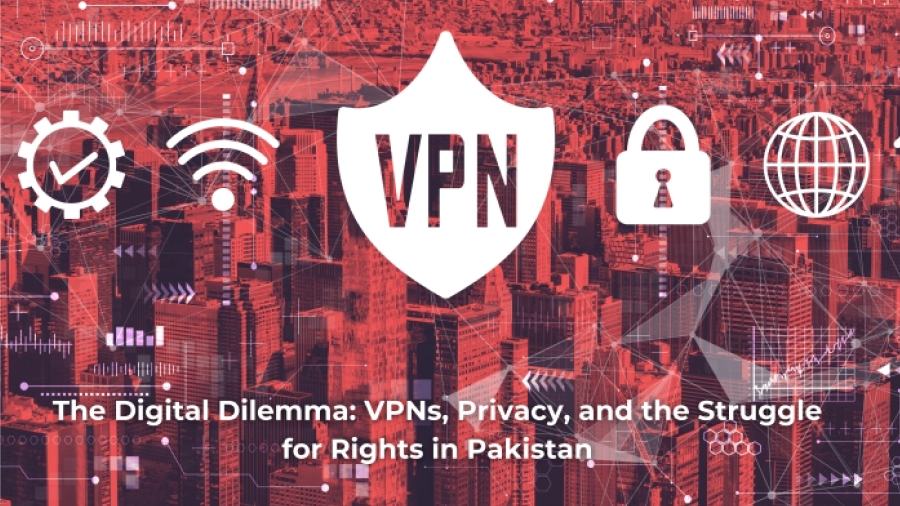
Code for Pakistan hosted a town hall at The Black Hole to address one of the most pressing digital issues of our time: The VPN Debate and What It Means for Privacy and Digital Rights in Pakistan . Led by Shaji Ahmed, the event brought together engaged citizens to explore the complex dynamics of internet governance, privacy, and freedom in the digital era. The discussion extended beyond the technical and societal implications of VPN restrictions, delving into the broader challenge of balancing national security with the fundamental rights of citizens.
In today's interconnected world, where technology mediates nearly every aspect of life, our understanding of fundamental rights must evolve. Rights such as privacy, freedom of expression, and security—once rooted in physical spaces—are now under pressure to adapt to the digital domain. VPNs (Virtual Private Networks) have become a symbol of this struggle in Pakistan. Often misrepresented by officials as tools of criminality and immorality, VPNs are, in fact, essential safeguards for privacy and dignity. They empower citizens to access information freely, protect their digital footprints, and maintain autonomy in an increasingly surveilled environment. Misunderstanding or vilifying VPNs jeopardizes not only the technology itself but also the rights it protects.
Throughout history, privacy has been integral to human dignity . Whether it's the sanctity of a home or the confidentiality of a sealed letter, privacy has long defined the boundaries of personal and societal spaces. Yet, in the digital age, this expectation is eroding rapidly. Smartphones now accompany us everywhere, holding more personal details than any diary ever could. Conversations that once happened behind closed doors are now carried through messaging apps. Financial records once locked in safes now exist as data on cloud servers. In this context, VPNs are not indulgences but necessities. They protect us from prying eyes—whether those eyes belong to hackers, corporations, or governments.
In Pakistan, the discourse around VPNs has been alarmingly reductive . Officials frequently frame them as tools of subversion, used by criminals or those seeking to bypass bans on platforms like X (formerly Twitter). While this narrative is convenient, it is misleading and harmful. Yes, criminals use VPNs—just as they use homes, vehicles, and telephones. But banning VPNs because of their misuse by a minority is akin to banning knives because they can harm, ignoring their indispensable role in daily life. The real issue lies not with the tool itself but in regulating its responsible use and educating the public about its benefits.
Surveillance and censorship do more than infringe on privacy—they corrode the very trust that underpins a functioning democracy. When governments prioritize monitoring over protecting citizens' rights, they risk being perceived not as protectors, but as oppressors intent on consolidating power. The Pakistan Telecommunication Authority's push for mandatory VPN registration and the proposed centralized digital identity system exemplify this trend. These efforts, while intended to improve governance, risk creating mechanisms of surveillance and control. Global examples show another way forward. The European Union, for instance, has introduced stringent data protection regulations through its General Data Protection Regulation , protecting citizens from unwarranted surveillance by corporations and governments alike. Pakistan must adopt similar forward-thinking measures rather than retreating into a surveillance state.
VPNs are more than tools for privacy; they are lifelines for Pakistan's digital economy . Freelancers, entrepreneurs, and small businesses rely on them to access global markets and safeguard sensitive client data. Journalists, researchers, and activists use them to communicate securely. Even government officials themselves depend on VPNs to access platforms like X , despite bans. Restricting VPNs would stifle innovation, harm key sectors, and hinder Pakistan's ambition of becoming a global IT hub. If we aim to compete in the digital economy, we cannot afford to undermine the very tools that enable participation.
This debate goes far beyond VPNs; it demands a fundamental rethinking of how we define and protect rights in the digital era. Rooted in pre-digital frameworks, our current systems are ill-equipped to address the complexities of a hyperconnected world. We must expand existing rights and envision new ones to meet emerging challenges:
- The Right to Privacy : Citizens must have control over how their data is collected, shared, and used.
- The Right to Internet Access : Equitable access is essential for bridging the digital divide.
- The Right to a Safe Digital Environment : Strong cybersecurity laws are necessary to protect users from exploitation and harm.
Reimagining digital rights is not merely a technological challenge—it is a matter of values . It is about preserving dignity, autonomy, and trust in an age of rapid transformation. For Pakistan, this begins with changing the narrative around tools like VPNs. These are not threats but enablers of progress and privacy. Security and freedom are not opposing forces; they are mutually reinforcing when rooted in transparency and accountability. The digital age offers boundless opportunities, but only if we approach it with foresight. By bridging tradition with transformation, we can build a future that upholds dignity, safety, and innovation.
Watch the town hall
Join the discussion! Share your ideas and feedback at info@codeforpakistan.org